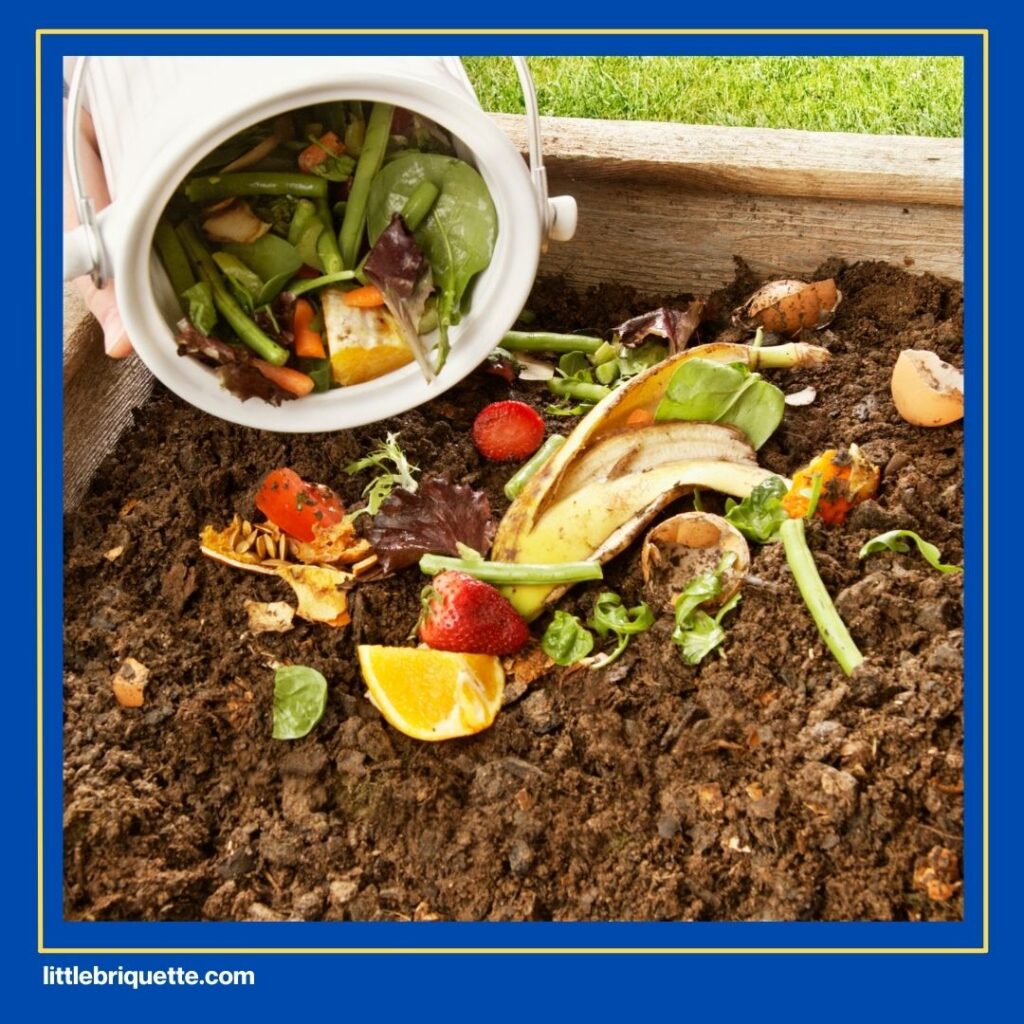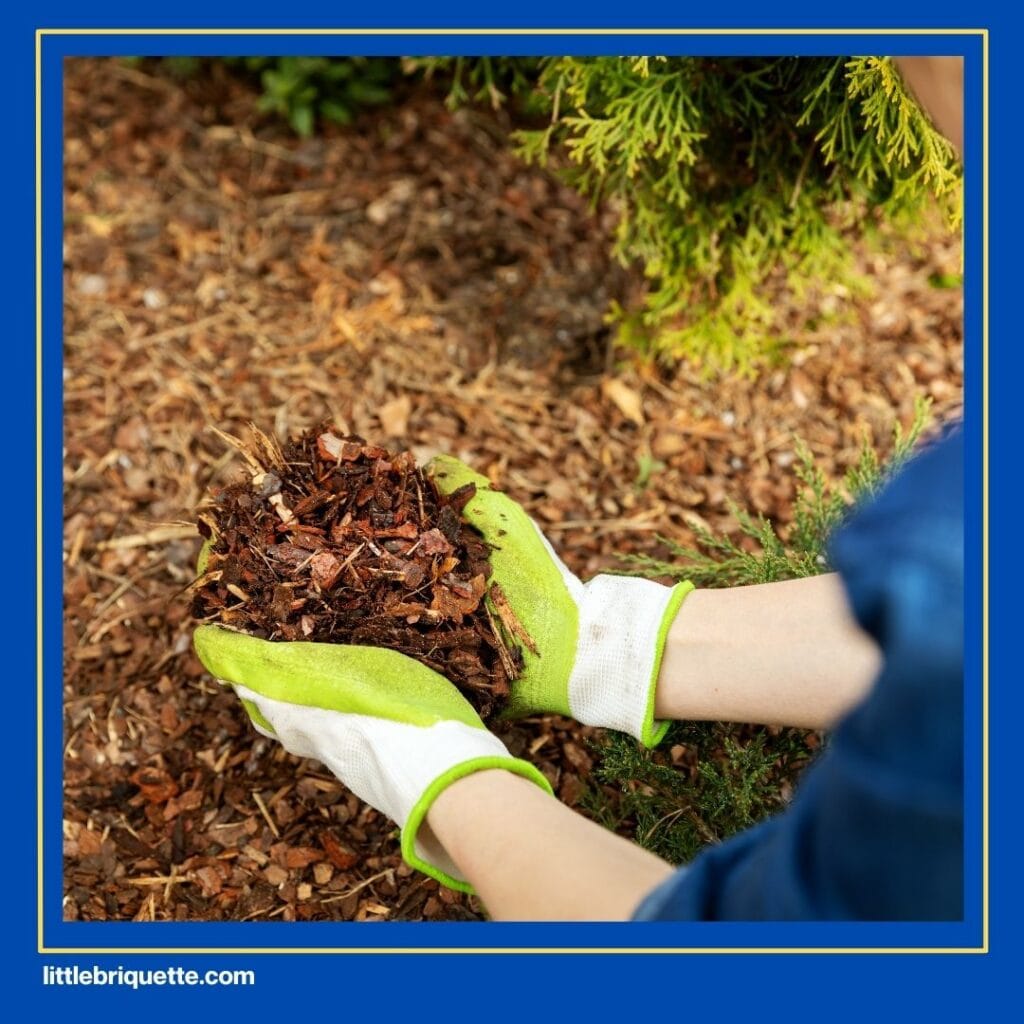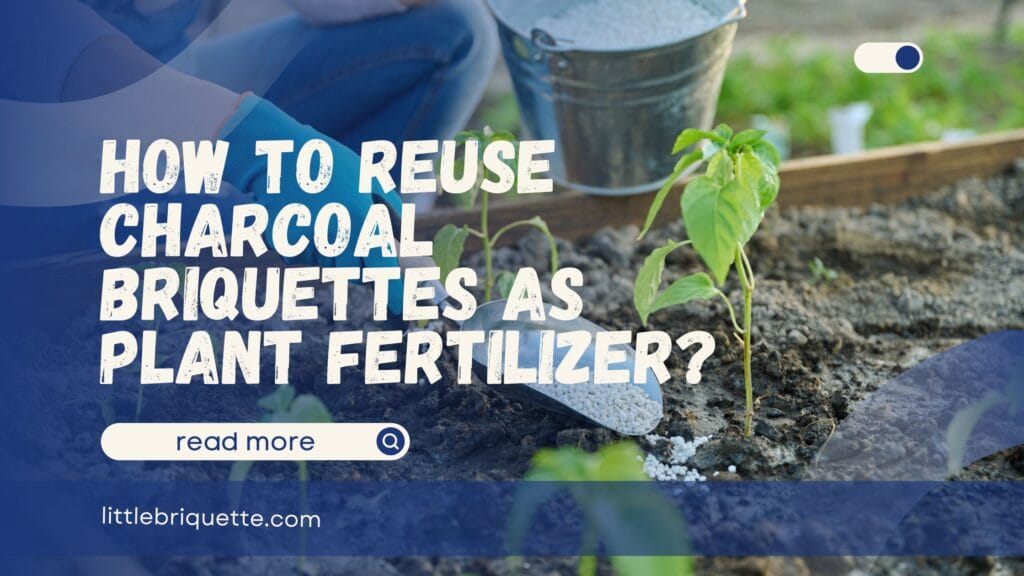Did you know that coconut charcoal briquettes, often considered waste, can actually be a highly beneficial natural material for your garden? Amid growing awareness about the importance of environmentally-friendly gardening practices, many gardeners are seeking ways to reduce waste and replace chemicals with natural solutions. One lesser-known solution is to reuse charcoal briquettes as fertilizer.
Not only does this reduce waste, but coconut charcoal briquettes can also enhance soil fertility, improve soil structure, and support healthier plant growth, bringing dual benefits for both the environment and your garden.
Can Charcoal Briquettes Be Used Directly on Plants?
Although coconut charcoal briquettes are made from natural materials, using them directly on plants is not recommended without proper processing first. This is because the dense and hard structure of the briquettes can hinder water and nutrient absorption by the plants, thus not providing maximum benefits to the soil and plants. Additionally, briquettes used for cooking or heating purposes may contain chemicals or additives that could harm plants if applied without proper preparation.
To avoid potential negative effects, coconut charcoal briquettes need to be processed before being used as fertilizer. This process includes cleaning the briquettes of any dirt or chemicals that may be present, breaking them down into smaller pieces or powder, and activating their properties by soaking them in water.
This process helps enhance the ability of coconut charcoal to absorb nutrients and water, while also ensuring that it is safe and effective when applied to the soil. With proper preparation, coconut charcoal briquettes can be a valuable fertilizer to improve soil fertility and support healthy plant growth.
Read Also: How to Dispose of Unused Charcoal Briquettes Safely
How to Reuse Charcoal Briquettes
There are several ways to reuse charcoal briquettes as fertilizer or soil additives. Each method has its own advantages, depending on the type of plants and soil conditions you have. Here are four effective ways to reuse charcoal briquettes in your garden or plants.
Mix with Compost

One of the most effective ways to use coconut charcoal briquettes is by mixing them into compost. Crushed coconut charcoal will increase the water retention capacity of the compost, helping the soil stay moist longer and preventing it from drying out too quickly. Additionally, coconut charcoal can improve soil aeration, allowing plant roots to breathe better. When this compost is used in the garden, it provides the nutrients plants need in a more natural and sustainable way.
Besides improving water retention, coconut charcoal in compost also acts as a absorbent for harmful gases and non-decomposed organic matter. This makes it a great material for reducing unpleasant odors that often arise from compost piles. The combination of charcoal briquettes and compost will result in richer soil with improved structure, offering long-term positive effects on your plants’ growth.
Reuse Charcoal Briquettes by Planting Directly into the Soil

Another method to try is planting crushed coconut charcoal briquettes directly into the soil. This process can offer long-term benefits for soil quality, particularly in improving the structure of compacted soil. Coconut charcoal helps prevent the soil from becoming too hard or compressed, allowing plant roots to grow more freely and easily absorb water and nutrients. It also improves drainage, ensuring that water does not accumulate around the roots, which could lead to root rot.
Additionally, coconut charcoal has the ability to absorb and store nutrients in the soil. When planted in the ground, it acts as a medium for storing nutrients that can be slowly released over time. By using this method, your plants will receive a more stable supply of nutrients without the need for excessive fertilization. Soil enriched with coconut charcoal also tends to be easier to plant in, as it becomes lighter and has better aeration.
Use in Potted Plants

If you have potted plants, adding coconut charcoal briquettes to the bottom of the pot is an excellent way to improve drainage. Crushed or chopped coconut charcoal can be placed as a base layer at the bottom of the pot. This helps prevent the soil from becoming too compacted and provides space for water to flow freely, preventing waterlogging that can damage plant roots. Soil that remains too wet often leads to root rot, so by adding coconut charcoal, you can ensure that the plant’s roots stay healthy.
Moreover, using coconut charcoal in pots can help maintain soil moisture for a longer time, reducing the need for frequent watering. Because coconut charcoal has the ability to absorb water, it slowly releases it, helping to stabilize the moisture around the roots. This is especially beneficial for potted plants that are exposed to direct sunlight and require extra attention when it comes to moisture management.
Use as Mulch

Using larger coconut charcoal briquettes as mulch can also provide numerous benefits for your plants. Coconut charcoal mulch helps regulate soil moisture by preventing water from evaporating too quickly. This is especially beneficial during the summer months or in areas with dry climates. Additionally, this type of mulch acts as a natural barrier against weeds, preventing the growth of wild plants that could compete with your main plants for sunlight and nutrients.
Coconut charcoal briquettes used as mulch also have the ability to improve soil quality gradually. Over time, the mulch will break down slowly, releasing beneficial elements for the plants and enhancing the surrounding soil structure. This is an eco-friendly and sustainable method because you are using a natural product that can also reduce the need for plastic mulch or other chemical materials often used in gardening.
By understanding these various methods, you can choose the one that best suits the conditions of your garden or plants, while optimizing the benefits of coconut charcoal briquettes for healthier plant growth and more fertile soil.
Read Also: Smart Tips for Buying Charcoal Briquettes in Bulk at the Best Price
Using High-Quality Charcoal Briquettes
The quality of the charcoal briquettes you use will also affect how effective they are when reused as plant fertilizer. If you use low-quality briquettes, they may result in coconut charcoal waste that cannot be used effectively or may even harm your plants.Therefore, choosing high-quality coconut charcoal briquettes is crucial. You can use charcoal briquettes from Little Briquette, a certified manufacturer in Indonesia that has successfully shipped products as far as Saudi Arabia. To ensure the best quality for your gardening needs, you can contact the admin at the provided number.

